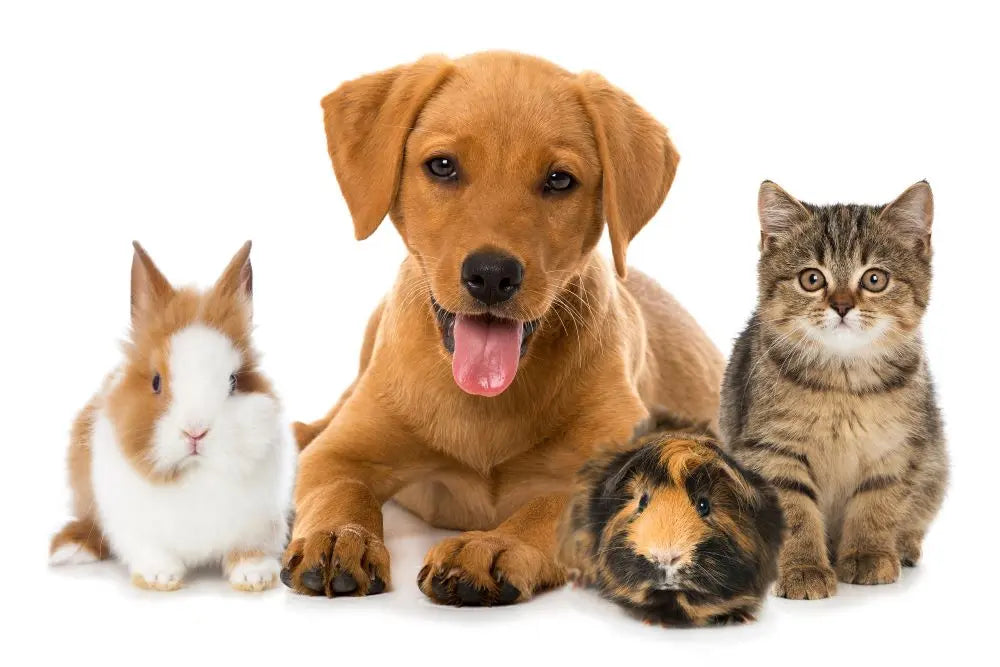From £6.99

Nurturing Your Pet: A Complete Guide to Understanding Nutritional Needs
When it comes to the well-being of our beloved pets, nutrition plays a pivotal role. Just like humans, each species and individual within that species have their own unique dietary requirements that must be met to ensure a long, healthy, and happy life. This guide will help pet owners understand these needs and make informed decisions about pet nutrition, featuring some of Chestnut Mill’s exceptional products.
1. Nutritional Needs for Dogs
Dogs, being omnivores, require a balanced diet that includes proteins, carbohydrates, fats, vitamins, and minerals. High-quality proteins, such as chicken, beef, or lamb, are essential for muscle development and overall health. Fats, particularly omega fatty acids, support skin and coat health, while carbohydrates provide energy.
When selecting dog food, consider your pet's age, size, breed, and activity level. Puppies, for instance, need more protein and calories than adult dogs. Senior dogs might benefit from lower-calorie foods to prevent obesity.
Chestnut Mill Recommends: Our range of premium dog foods caters to various dietary needs, including grain-free options for dogs with allergies and specialized formulas for puppies, adults, and seniors.
2. Feline Dietary Requirements
Cats are obligate carnivores, which means their diet must primarily consist of meat. Their nutritional needs include a high protein intake, essential amino acids like taurine, and fatty acids. Additionally, cats require specific vitamins and minerals that are commonly found in meat.
Feeding cats a diet rich in high-quality proteins is crucial. Also, consider their preference for wet or dry food, ensuring they have constant access to fresh water, especially if they consume dry food.
Chestnut Mill Recommends: Explore our vast selection of cat foods rich in meat-based proteins and essential nutrients, suitable for kittens to adult cats, ensuring they receive a diet that meets their specialized needs.
3. Understanding Small Mammals' Nutrition
Small mammals like rabbits, guinea pigs, and hamsters have distinct dietary needs. Rabbits and guinea pigs, for example, are herbivores requiring high-fiber diets primarily composed of forage, along with fresh vegetables and specially formulated pellets. Guinea pigs also need a supplemental source of vitamin C.
It's important to provide a variety of foods and monitor their intake to prevent nutritional deficiencies and support dental health.
Chestnut Mill Recommends: Check out our comprehensive range of small mammal foods, which include high-quality forage and vitamin-enhanced pellets to support balanced nutrition.
4. Supplementing Your Pet’s Diet
In some cases, pets may benefit from dietary supplements to address specific health concerns, enrich their diet, or support their active lifestyle. Consult with a veterinarian to determine if supplements are appropriate for your pet.
Chestnut Mill Recommends: We offer a range of pet dog supplements designed to meet various needs, from joint support to skin and coat health, ensuring your pet always looks and feels their best.
Conclusion
Choosing the right nutrition for your pet can seem daunting, but understanding their basic dietary needs can simplify the process. At Chestnut Mill, we are dedicated to providing high-quality pet foods and supplements that cater to each pet’s specific requirements. By choosing the right products, you can help ensure a healthy, happy life for your furry companions. Explore our selection to find the perfect nutrition for your pet.
